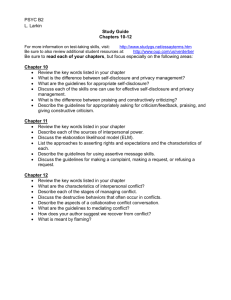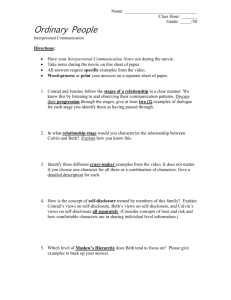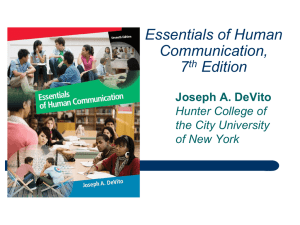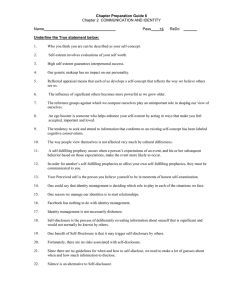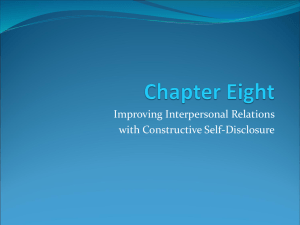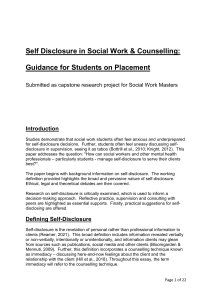Wen Dong Week 3 Review of "Self-Report Methods in Studying Personal Relationships"
advertisement
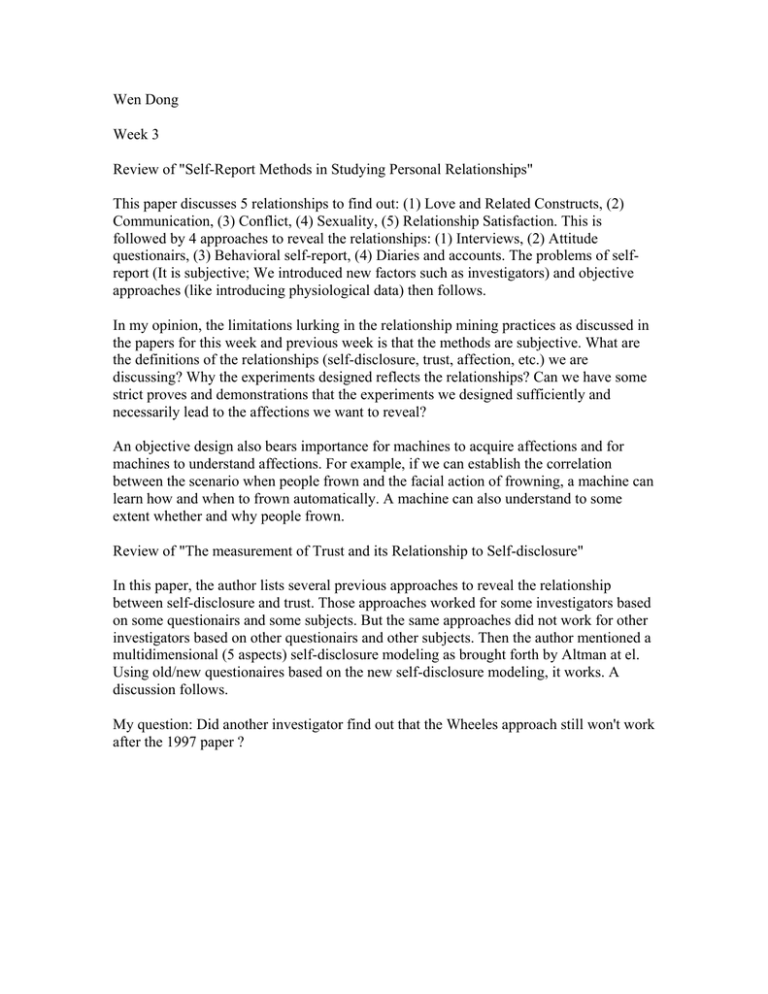
Wen Dong Week 3 Review of "Self-Report Methods in Studying Personal Relationships" This paper discusses 5 relationships to find out: (1) Love and Related Constructs, (2) Communication, (3) Conflict, (4) Sexuality, (5) Relationship Satisfaction. This is followed by 4 approaches to reveal the relationships: (1) Interviews, (2) Attitude questionairs, (3) Behavioral self-report, (4) Diaries and accounts. The problems of selfreport (It is subjective; We introduced new factors such as investigators) and objective approaches (like introducing physiological data) then follows. In my opinion, the limitations lurking in the relationship mining practices as discussed in the papers for this week and previous week is that the methods are subjective. What are the definitions of the relationships (self-disclosure, trust, affection, etc.) we are discussing? Why the experiments designed reflects the relationships? Can we have some strict proves and demonstrations that the experiments we designed sufficiently and necessarily lead to the affections we want to reveal? An objective design also bears importance for machines to acquire affections and for machines to understand affections. For example, if we can establish the correlation between the scenario when people frown and the facial action of frowning, a machine can learn how and when to frown automatically. A machine can also understand to some extent whether and why people frown. Review of "The measurement of Trust and its Relationship to Self-disclosure" In this paper, the author lists several previous approaches to reveal the relationship between self-disclosure and trust. Those approaches worked for some investigators based on some questionairs and some subjects. But the same approaches did not work for other investigators based on other questionairs and other subjects. Then the author mentioned a multidimensional (5 aspects) self-disclosure modeling as brought forth by Altman at el. Using old/new questionaires based on the new self-disclosure modeling, it works. A discussion follows. My question: Did another investigator find out that the Wheeles approach still won't work after the 1997 paper ?
